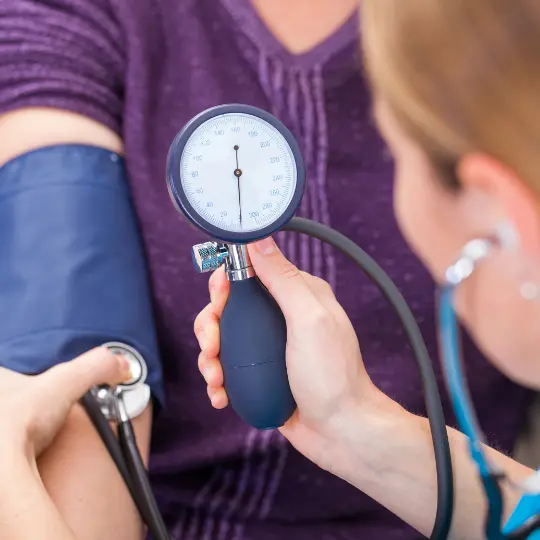MENOPAUSE AND DIABETES
Menopause is a life-changing time at a woman’s life. The journey leading to, during and right after menopause can be rocky and tricky yet overcoming it gracefully can be equally and utterly satisfying. Rocky means difficult due to its numerous symptoms as well as the complications of menopause and diabetes is one of its many complications. Menopause and diabetes are both difficult, complex and frustrating.
Generally, menopause happens around ages 45-55, all three stages – perimenopause, menopause and post-menopause – included. Each of these stages of menopause entail varying symptoms with varying intensities including hot flashes, menopause itching, PCOS after menopause among many others. Menopause happens when your oestrogen hormone starts to decline and eventually stop production. You can actually read further each of the stages HERE. Yet one question remains, what is the likelihood of having menopause and diabetes altogether?
4 Risk Factors and How they Affect Menopause and Diabetes
Oestrogen and progesterone hormones govern some of the body’s functions such as menstrual periods and interaction to other hormones in the body such as the insulin. Insulin regulates blood sugar levels in the blood stream. Fluctuations of Oestrogen and progesterone hormones could have great effect on the interactions and responses of your cells and organs to insulin, especially during menopause, leading to greater risk of having type 2 diabetes. (1)
Other symptoms and complications of Diabetes include the following (2):
- Difficulty during sleep can make it difficult to regulate blood sugar level. On top of that, night sweats and hot flashes can disrupt your sleep, too. And these can lead to higher risk of diabetes.
- Gaining weight due to slower metabolism as you go through the whole stages of menopause is not unusual among women, largely because of fluctuations and decline on estrogen hormone levels. And as we all know, gaining weight puts you at a higher risk of diabetes, as well as heart diseases.
- Fluctuating hormones also means fluctuating blood sugar levels, hence higher risk of diabetes.
- Higher blood sugar levels have negative effect on nerves and eyesight, as well as causing inflammation on some tissues such as the vaginal walls as it becomes thinner resulting to painful sex, all the while intensified by dry skin and menopause itching as they are some of the most common complications of menopause. Moreover, dryness and menopause itching can also be felt on other parts of the body.
4 Ways to Manage Menopause and Diabetes
“Ugh, I hate menopause!” You might well be saying this line by this time, and trust us, you are not alone. As a menopause woman experiencing some of the difficult menopause issues, you could barely handle everything altogether, menopause and diabetes included, so take your own time and choose your options wisely.
Below are some tips on hot to handle the complications of menopause and diabetes:

1. Quality sleep is important
Give proper attention to having quality sleep every night. Arrange and make your room a nice place to rest after a tiring day.
Keep your bedroom only for sleeping, no television and away from your phone.
To complete this goal means you also have to evaluate and organize some of your daily activities.

2. Manage your weight
Managing your weight entails healthy lifestyle.
Healthy lifestyle includes balanced and nutritional diet paired with regular exercise and perhaps some supplements to boost your health and strength.
We have some natural menopause supplements available which may be suited for you, you can check them HERE.

3. Monitor your blood pressure
Blood pressure must be constantly monitored so that you would know your current condition and act right away if needed.
Have your own blood pressure monitor at home
Your blood sugar levels must also be constantly checked or monitored to administer what is necessary and address urgent matters immediately.

4. Regular visit to your doctor
The last but definitely not the least, pay a visit to your health service provider or physician.
He or she has the expert suggestions for you on what will be the best treatment plan or course of action to take
All factors and circumstances should be considered prior to taking medications or commencing any action, and that is done by your attending physician.
We sincerely hope and aim to make this menopause journey for you as graceful as it can be. It can be tough, yes, but hey there’s truth in this famous line: “When the going gets tough, the tough gets going”, right?!
REFERENCES
(1) https://www.diabetes.co.uk/menopause-and-diabetes.html
(2) https://www.healthline.com/health/type-2-diabetes/menopause-type-2-diabetes#menopause-and-diabetes
Menopause can really make some changes in your
body and health so be realistic when it comes to
your expectations.
RELATED POSTS

MENOPAUSE AND HEART DISEASE
Cardiovascular diseases are the leading cause of death for older women in the United States, Canada and Australia.

DEPRESSION IN MENOPAUSE
Depression in Menopause is more common than you may think.

MENOPAUSE AND INSOMIA
This is a more common complaint in women than in men and is detrimental to your health.

MENOPAUSE & HYPERTENSION
The onset of hypertension during menopause can cause additional concerns to women's health.

MENOPAUSE & WEIGHT GAIN
Weight gain can rob you of expanded activities you can do before and foods you want to eat - yes, because you...

MENOPAUSE & HOT FLASHES
One of the most common complications of menopause is probably the hot flashes and the one that can last for a long time...
EXPLORE

STAGES OF MENOPAUSE
The clues and symptoms are the result of unbalanced and changing hormone levels of oestrogen in your body.

COMPLICATIONS
Complications of menopause - the risks women face for certain health problems; heart disease, depression, weight gain, insomnia, hypertension, osteoporosis

MENOQUOTES
There are 3 billion women who, sooner or later will experience Menopause but many still find it uncomfortable to talk about… it’s about time we change this.